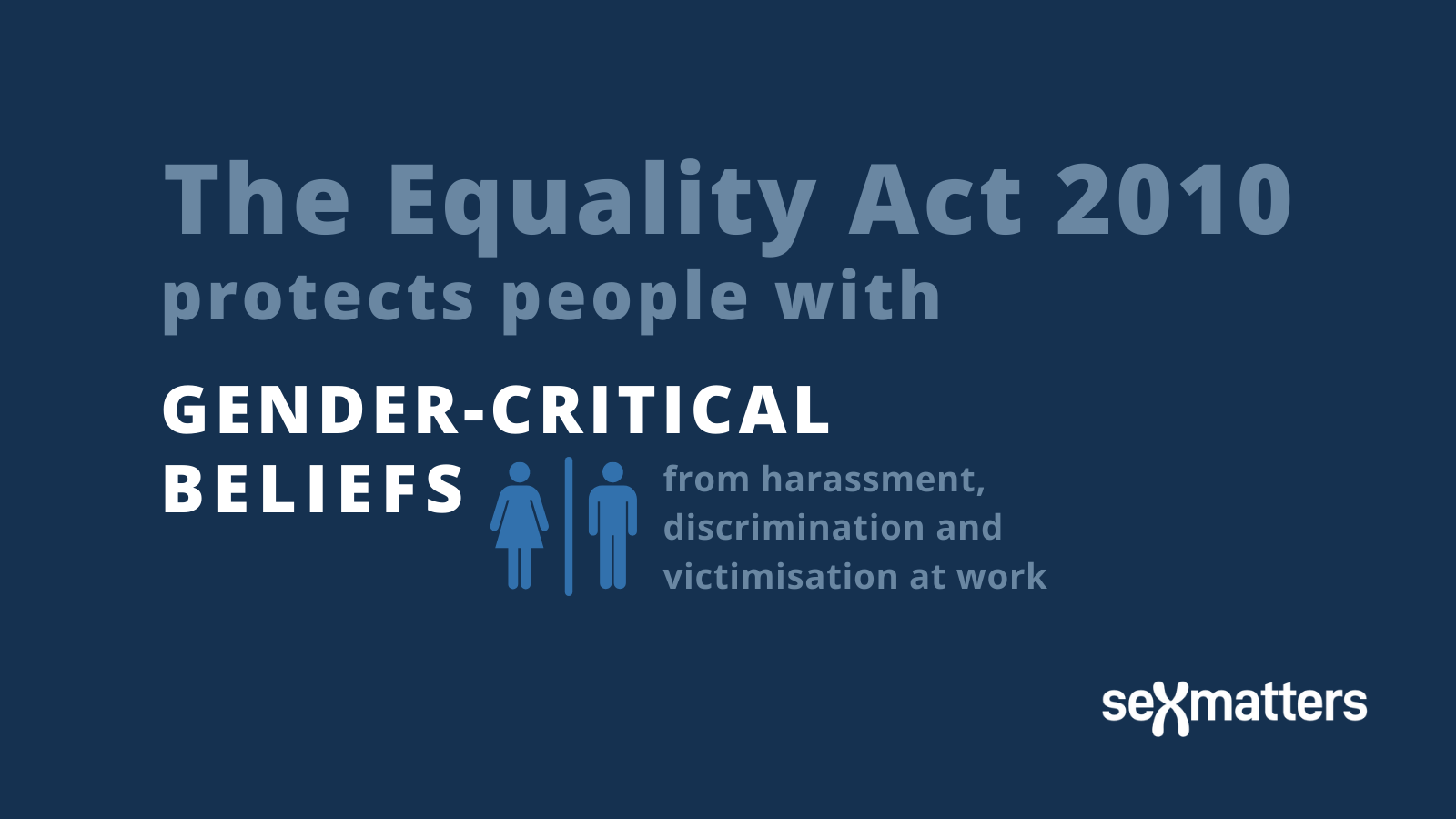We have been worthy of respect for a whole year!

A year ago today Maya Forstater won a critical judgment in the Employment Appeal Tribunal, establishing that gender-critical beliefs are “worthy of respect in a democratic society”.
The judgment had many implications:
- Employers should not refuse to employ someone because they have expressed gender-critical views online.
- Organisations should recognise that people with gender-critical beliefs are protected against harassment. Encouraging staff to call gender-critical people “TERFs”, transphobes or bigots, or denigrating their belief, could result in liability for harassment.
- People are also protected because of lack of belief in gender ideology. You should not be forced to comply with a policy which requires all employees to “state their pronouns”.
- You could challenge your employer, school or university if they do not providing changing, washing or toilet facilities that offer adequate privacy from members of the opposite sex.
And as a result of this judgment we have seen some significant changes:
- Many people have told us that they feel more confident to speak up in their own names, both online and off, and to talk about why sex matters.
- People have told us they have been able to use the Forstater judgment at work to get their employer to de-escalate complaints.
- The Equal Treatment Bench Book, which tells judges how to treat people in court, was substantially revised.
- The Equality and Human Rights Commission has issued new guidance on single-sex and separate-sex services, underpinned by the recognition that the belief that sex matters cannot simply be dismissed as “transphobia”.
- The judgment is being referenced in HR training and policies, and employers are being told by HR experts that they need to make sure their policies are compatible with it.
- The Universities and Colleges Union backed down from a motion calling for discrimination against gender-critical members.
- The vice-chancellor of Reading University stood up to complaints of “transphobia” against a gender-critical speaker.
Several discrimination cases are ongoing, including those of Maya Forstater, Allison Bailey, Jo Phoenix, Gillian Phillips, James Esses and Rachel Meade. Overall, however, cracks are opening up in the wall of silence and fear that has long surrounded conversation about sex and gender. We are also seeing more and more groups form – doctors, nurses, teachers, social workers, university staff, civil servants, charity workers, people in the arts and in business are building networks and challenging their institutions together.
But we have also seen organisations digging in:
- The Arts Council withdrew funding from the LGB Alliance because its charitable status is being challenged over claims that an organisation for same-sex attracted people is not inclusive.
- The FDA civil service trade union passed a motion to “put boundaries“ on gender-critical speech.
- A schoolgirl was hounded from her sixth form for expressing gender-critical beliefs reflects a common experience of gender-critical beliefs being denigrated as “transphobic” in schools.
- School libraries have removed books by gender-critical authors.
- Civil servants are told in training that the phrase “adult human female” can be transphobic and that there are no conflicts of rights between trans rights and women’s rights.
- Stonewall continues to compare lesbians who resist the idea that men can be lesbians to “sexual racists”, and, as the case of Allison Bailey showed, this idea is accepted in high places such as the Bar Council Ethics Committee.
Attitudes need to change in workplaces. Every employer, school, university and college; every police force, government department and youth organisation needs to understand that it must not harass, bully or discriminate against people who say that sex matters. This is going to take a combination of legal education, cultural change and winning cases.
To celebrate and mark “WORIADS” day, Sex Matters is starting a campaign to help people understand their rights, and to educate employers. We’ve got leaflets, flags and posters for you – print them out or share them online. And you can also become a Sex Matters supporter: carry our bag and use our mug!
Flags and posters
Flags to put on your desk at work
Posters for your window or office noticeboard:
Leaflet to share
Print out and pin to your noticeboard or give to colleagues, or share by email, on your workplace intranet and on LinkedIn. Why not email it to your head of HR and ask what your workplace is doing to prevent belief discrimination?
